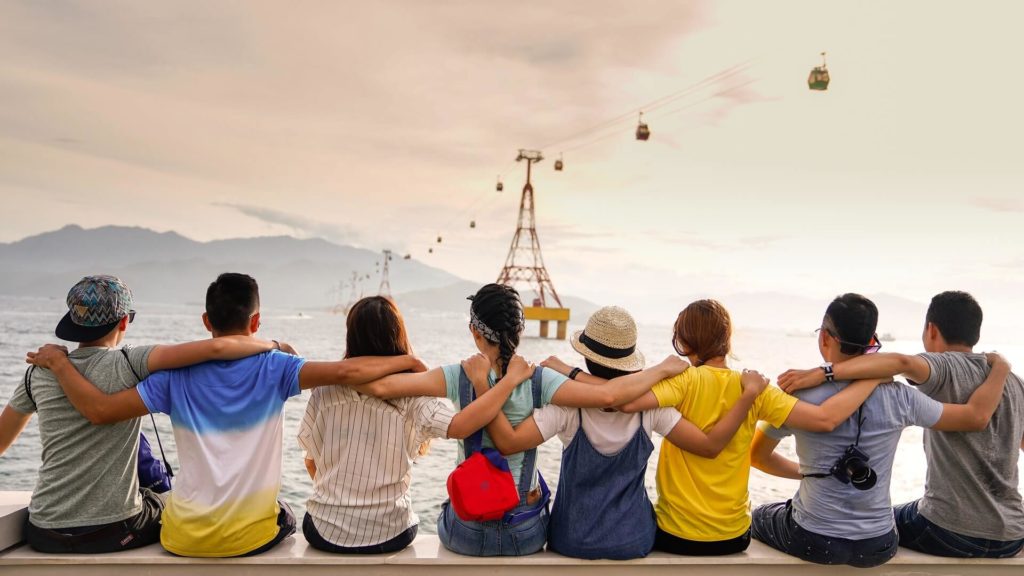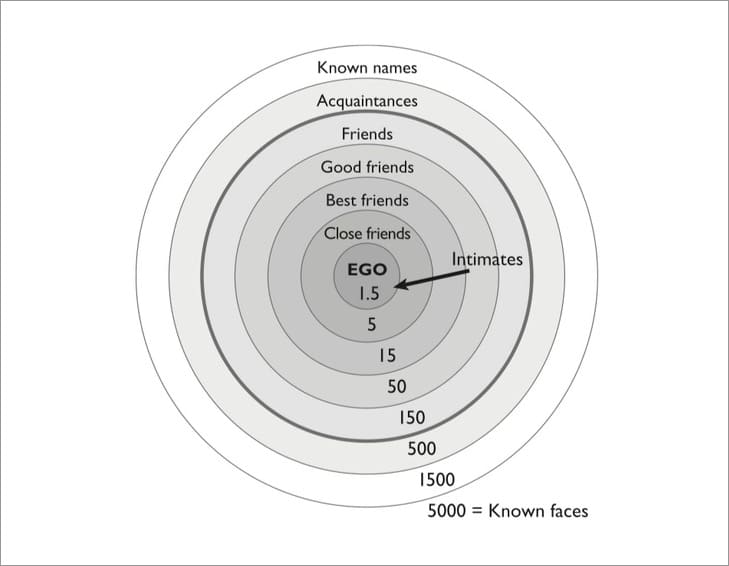Improving longevity through relationships is a crucial health pillar that receives far less attention than it deserves. As we’ve discussed before when it comes to longevity, it’s well documented that only about 20% of how long the average person lives is dictated by genes, the other 80% is influenced by lifestyle and environment.
While longevity is inherently tied to a myriad of factors, Dan Buettner, a National Geographic Fellow and founder of the Blue Zones Project, has identified a few regions around the world – now recognized as “Blue Zones” – where people reach age 100 at 10 times greater rates than in the US.
One might assume that factors such as air quality/pollution, proportion of people who are obese, and the amount of daily physical activity might largely influence outcomes. However, it’s been found that these factors only have a small influence on overall lifespan.
It turns out that relationships are one of the most impactful predictors of longevity.
The Science of Relationships
A research project that followed data across 308,849 individuals for 7.5 years indicated that individuals with adequate social relationships have a 50% greater likelihood of survival compared to those with poor or insufficient social relationships. The magnitude of this effect is comparable with quitting smoking and it exceeds many well-known risk factors for mortality (e.g., obesity, physical inactivity).
When multidimensional assessments of social relationships were considered, the odds of mortality increased by 91% among the socially isolated.
Hormones are believed to play a significant role in the causal connection between relationships and lifespan.
For instance, face to face interactions promote the release of a multitude of neurotransmitters. When we interact with others, our dopamine and oxytocin levels increase and our cortisol (i.e. stress hormone) levels decrease.
Said another way, face-to-face interaction increases our confidence, happiness, and empathy and lowers our inflammation-inducing stress.
Dunbar’s Number
The Oxford evolutionary psychologist, Robin Dunbar, is best known for his namesake “Dunbar’s number.” At it’s core, Dunbar’s number is the number of meaningful and stable relationships you can have at any one time. That includes extended family as well as friends.
The proposed number is 150 although the range of variation is somewhere between 100 and 250.
When examining historical, anthropological, and contemporary psychological data about group sizes, Dunbar found remarkable consistency around the number 150.
This number aligns closely to early hunter-gatherer societies as well as many modern groupings: offices, communes, factories, military organizations, 11th Century English villages, even Christmas card lists.
When the number exceeds 150, a network is unlikely to last long or cohere well.
However, after spending decades studying the complexities of friendship, Dunbar discovered many more numbers that shape our close relationships.
Turns out, Dunbar’s number is less of an absolute numerical threshold than a series of concentric circles, each standing for different kinds of relationships.
A quick summary of these layers:
- 1.5: Our most intimate, romantic relationship.
- 5: Our “shoulders-to-cry-on” friendships. They are the ones who will drop everything to support us when our world falls apart.
- 15: Includes the previous five, these are our core social partners – our best friends. They are our main social companions.
- 50: Our big-weekend-barbecue people.
- 150: Our weddings and funerals group who would come to a once-in-a-lifetime event.
- 500: Our acquaintances
- 1500: The people whose name you know
- 5000: Number of known faces.
Relationships Are An Investment
The strength of a given relationship is directly correlated with how much time and effort is invested.
Ironically, despite living in the most “socially connected” time in human history, technology has diluted many of our relationships.
Instead of relying on apps/email/social media to stay in touch, use technology for good – leverage it as a conduit for scheduling a deeper, more meaningful check-in (ideally in-person).
In a country that spends more than $100 billion annually on diets, health club memberships, and nutritional supplements – investing the time/energy into the social fabric of our lives is free, low-hanging fruit with immense ROI.
Curating Healthy Relationships
Many relationships change with the seasons.
We evolve and we grow – so, too, our relationships.
As relationships come and go throughout our lifetimes, the loss of certain relationships shouldn’t be viewed negatively, but rather as healthy pruning.
As Dunbar reminds us, we have a limited bandwidth for maintaining relationships: every fizzled relationship presents an opportunity to welcome a new one.
One of the commonalities of the world’s longest-lived people in the Blue Zones is that they often “curate” social circles that support healthy behaviors.
Healthy habits and behavior are, quite literally, contagious. Conversely, deleterious behaviors (i.e. obesity, smoking, excessive drinking, loneliness, unhappiness) are also contagious.
Jim Rohn was famously quoted as saying that “we are the average of the five people we spend the most time with.”
The best way to improve longevity through relationships is to begin by surrounding yourself with relationships that fill your cup.
Men’s Health:
Relationships are crucial for men and women in all stages of life.
However, men – especially as they age – are more likely to lack deep, meaningful friendships.
This lack of connection typically leads to one of the most frequent stressors in mens’ lives: loneliness.
CALL TO ACTION:
Men – consider joining me (Dennis) in Woodridge, NY between October 13-16 at the next retreat hosted by The Wisemen Project.
The weekend will combine ancient wisdom with modern science and include:
- mobility and functional movement
- yoga and qigong
- meditative practices and breathwork
- hiking
- cold and heat immersion
- organic chef prepared meals
- human connection
- and so much more
For those interested in learning more, feel free to reach out to me directly. If you decide to join, be sure to use the code “friend5” for a 5% discount at checkout.







